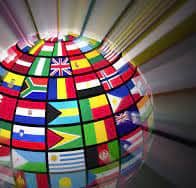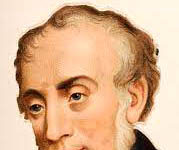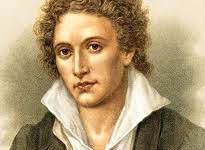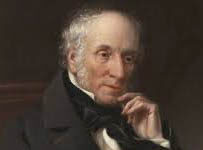The Roles of Language and Literature in Building a Nation
The Roles of Language and Literature in Building a Nation
The Roles of Language and Literature in Building a Nation
Language is a medium of human communication- either spoken or written- consisting of the use of meaningful words in an agreed way. It is the unique gift bestowed upon human beings by nature. There are thousands of languages in the world the functions of which are varied and the sole one is that it is the spontaneous carrier and conveyer of human thoughts, feelings, emotions, passion and of anything else of human interest. When human thoughts take concrete shape being expressed through language was termed as ‘logos’ (‘knowledge’) by the Greeks in ancient times. In other words, to say, language is the pot, carrier and conveyer of human knowledge, without having any alternative peer, that acts as a bridge of communication from one person to another, from one generation to another generation and from one age to another age.
On the other hand, literature is anything meaningful expressed in language that reflects not only the human mind but also the protean aspects of human society as -political, social, cultural, religious and also geographic phenomena of a nation; and by the side of these roles, language and literature play a vital and crucial step in bringing about national harmony, integrity and above all it takes a spellbound role in building a nation. We can substantiate this truth by studying the history of world civilization briefly as follows:
The world unanimously admits the supremacy of the Greeks in the domain of intellect and knowledge that they acquired and possessed in ancient times i.e. a long span of time before Jesus Christ was born. They achieved a high degree of civilization in such an age when the entire world was sunk into utter darkness. The vivid testimony of their intellectual and technical supremacy is the Pyramids which have been surviving till today withstanding the effects of the sun and rain. This long-standing pride of the Greeks rests on some world-famous poets, philosophers, playwrights and historians like Socrates, Plato, Aristotle, Aristophanes, Euripides, Hippocrates and others. That intelligentsia not only inaugurated the tradition of free thoughts in advance but also contributed much to the building of a nation to which the rest of the world is highly indebted. The writings of Plato and Aristotle had been used as textbooks for one thousand and five hundred years in almost all the educational institutes of Europe.
Likewise, the English, as a nation emerged and began to take shape in the tenth century when only an independent language began to be hatched in the mouth of the Anglo-Saxon. Later on Jeffery Chaucer, Lindale, John Bunyan, and during the fifteenth century the Elizabethan writers and thinkers as- Edmund Spencer, Christopher Marlowe, William Shakespeare, Francis Bacon and some others enriched the storehouse of literature with their valuable writings. In the present day, the world knows the English as a nation because of the language and literature. Today none can deny the fact that in forming the identity of the English nation the roles of the English language and literature have played a poignant role.
Thus after the advent of Hazarat Muhammad in the Arab Peninsula a new awakening happened to a barbarous nation that had no identity of its own till then. The prophet Muhammad blessed mankind with the divine book Kuran and Hadith which were composed in Arabic and by means of the everlasting appeal of the two books, the Arab as an independent nation began to emerge anew in the seventh century and subsequently within only two hundred years the Islamic culture and civilization spread from Medina to Africa and to the far east and thus the Arabic language and literature contributed much to the formation of Islamic nation worldwide.
In India, the Sanskrit language and literature played a dominant role in making a vast Hindu Civilization. The impact of the Ramayana, Mahabharata, Veds, Purans have fallen a far-reaching impact and impression on the mind and culture of the Indians. Today all the Indians are proud of this inheritance. During the freedom movements of India all the Indians were ignited by the ideals of the Vedic teachings and thus by means of the ideals of Sanskrit literature i.e. Veds, Purans, Ramayana, Mahabharata etc. the sense of one culture and one nation came to the mind of the Indians and consequently all the Indians united together against the foreign rule in India and achieved freedom from the bondage of the British.
Thus in building modern French nation the French language and literature had played a vital and decisive role as the writings of Montaigne Montesquieu, Rousseau and some others brought about a new awakening, national integrity, anti-monarchy revolution and built a vast democratic nation that became a paradigm of democratic ideals for the rest of the world.
In very recent years, we see that the creation of Bangladesh is the result of linguistic reawakening after the five decades of the twentieth century. During the Bangladeshi Freedom movement, the Bengali language worked as a means of fire flame.
In Assam, the Assamese language has been performing the function of a chorus and mediator in bringing about communal harmony among the varied tribes and castes in the Northeast region of India. The study of the history of the Assamese language and literature reveals that Assamese as a language began to be formed in the tenth century and through a long course of history it got its own identity in the fifteen century. It is said that with the composition of Hem Sharswati’s Prahlad Charita the tradition of Assamese written literature began. After him, some scholars and poets like Madav Kandali, Sri Sankardev, Madav Dev, Bhattadev and a few others strengthened the foundation of Assamese language and literature basing upon which modern Assamese literature and culture flourished. In the writings of Hem Saraswati, Madav Kandali, Sankardev and Madab Dev all the aspects- religious, social , political and cultural have transparently reflected and thus the Assamese language and literature have played a vital role in building the modern peculiar Assamese nation. Though Assam is a land of varied castes and creeds it is the Assamese language and literature which have bound up all as an integrated nation.
In conclusion, it is to say that language and literature act as the soul of a nation and as long as the soul keeps living so long the nation would be flourishing. 0 0 0.
N. B. The essay ’Roles of Language and Literature in Building a Nation’ was first published in the Hilapakri Madrassa High School Annual Magazine, 2014-15.
The Roles of Language and Literature in Building a Nation.
The Roles of Language and Literature in Building a Nation
The Roles of Language and Literature in Building a Nation
You May Like: Positive Thought, Patience and Perseverance
The Roles of Language and Literature in Building a Nation
N. B. The article ‘The Roles of Language and Literature in Building a Nation’ originally belongs to the book ‘Articles on Contemporary Affairs‘ by Menonim Menonimus.
The Roles of Language and Literature in Building a Nation,
The Roles of Language and Literature in Building a Nation
Books of Composition by M. Menonimus:
- Advertisement Writing
- Amplification Writing
- Note Making
- Paragraph Writing
- Notice Writing
- Passage Comprehension
- The Art of Poster Writing
- The Art of Letter Writing
- Report Writing
- Story Writing
- Substance Writing
- School Essays Part-I
- School Essays Part-II
- School English Grammar Part-I
- School English Grammar Part-II..
Books on Literary Criticism by M. Menonimus:
- World Short Story Criticism
- World Poetry Criticism
- World Drama Criticism
- World Novel Criticism
- World Essay Criticism
- Indian English Poetry Criticism
- Indian English Poets and Poetry Chief Features
- Emily Dickinson’s Poetry-A Thematic Study
- Walt Whitman’s Poetry-A Thematic Study
- Critical Essays on English Poetry
- Tawfiq al-Hakim’s Novel: Return of the Spirit-An Analytical Study
- Tawfiq al-Hakim’s Novel: ‘Yawmiyyat Naib Fil Arayaf’-An Analytical Study
- Analytical Studies of Some Arabic Short Stories
- A Brief History of Arabic Literature: Pre-Islamic Period (500 AD-622 AD)
- A Brief History of Arabic Literature: Early Islamic Period (622 AD-661 AD) …
Related Search:
- The Role of Language and Literature in National Development
- Role of Language, Literature, and Culture in National Integration











